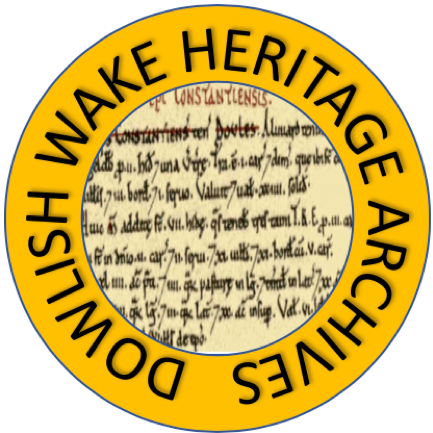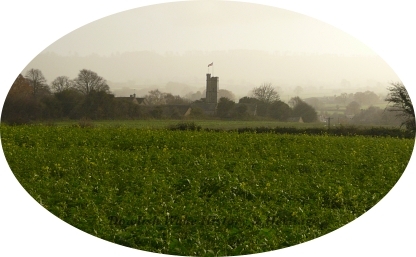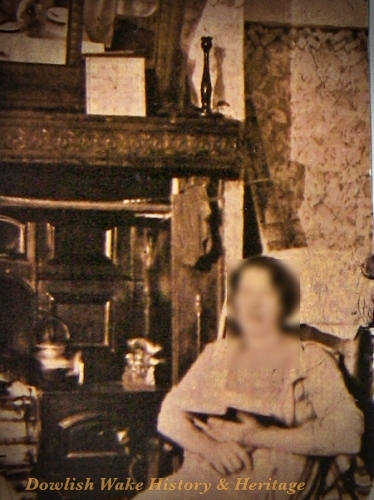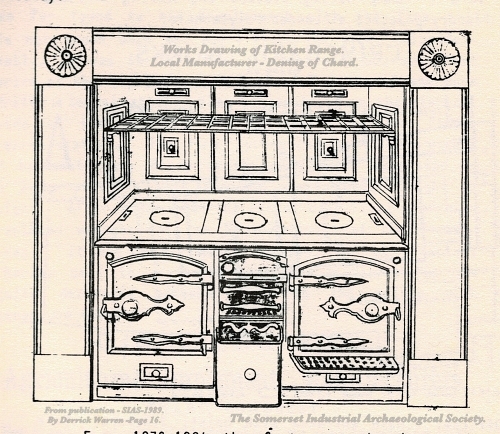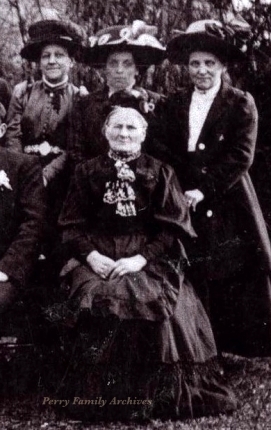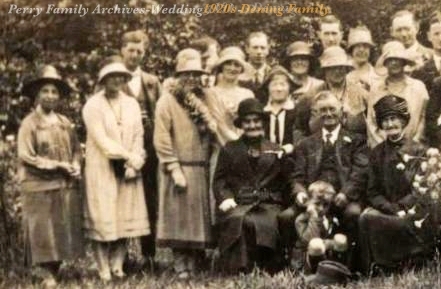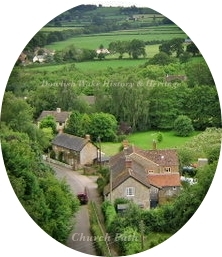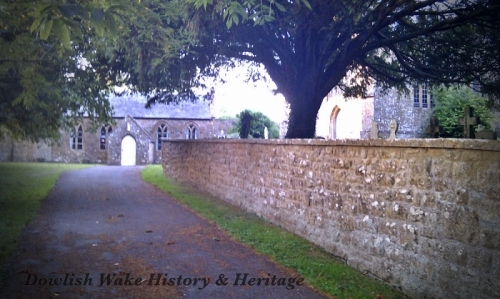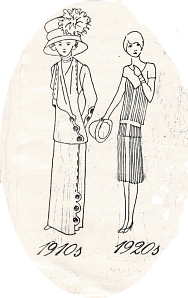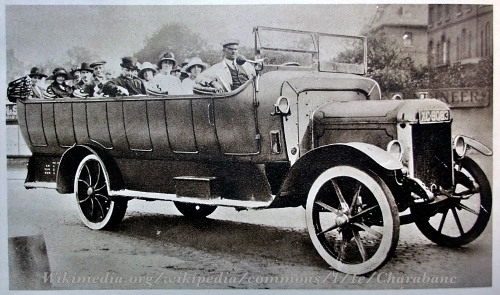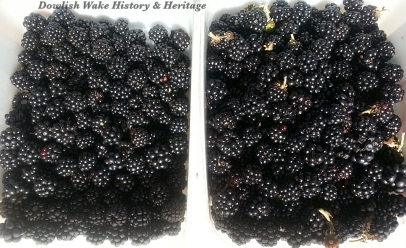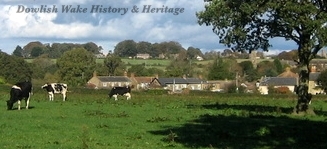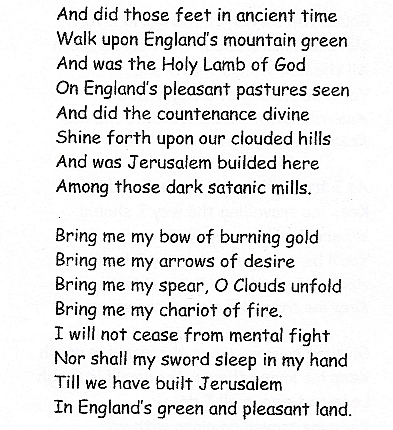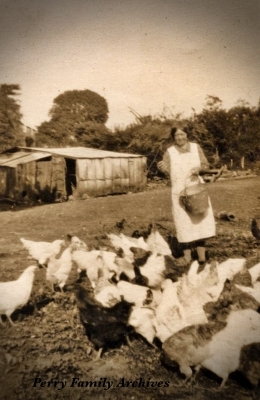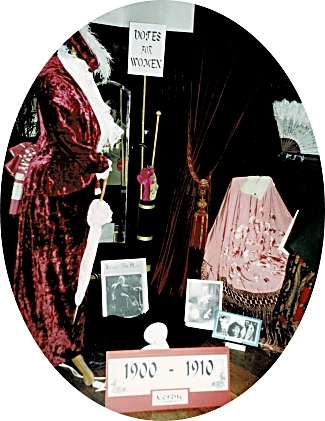Dowlish Wake Womens Institute
1919 - 1929
- Men-only clubs take a back seat.
- The coming together of rural women.
- Jerusalem, Jam and Blackberries.
Nationwide, rural country women welcomed the setting up of these village women-only Institutes.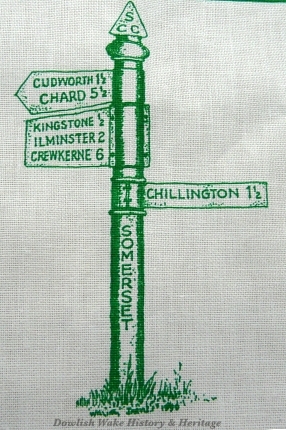
In November of 1919, on the 15th Mrs Robinson of Coombe St Nicholas addressed a large group of interested women in the Dowlish Wake school hall. She explained the concept and how women from other villages found the experience helpful.
A Mrs Clopes from Hinton St George & Dinnington W.I. told how they had formed their branch the previous year. Village women came together in a social, industrial and educational fashion, be they labourers’ or landowner’s wives. Each had much to offer, practical knowledge and experience. She told of the W.I. aims and ambitions, its democratic, non-political and non-religious nature. Now, with the aftermath of wartime, new beginnings, through mutual help, could bring good times for each other and Britain.
In the first week of December, Dowlish Wake & Kingstone Women’s Institute held their first meeting, in the school room, with 30 members enrolled. A committee was chosen and voted in. Meetings would be held on the 1st Wednesday evening of each month, from 7 to 9 pm. A suggestion box would be provided, and each month a member could if wished act as hostess.
President Mrs Emily Walters
Vice President Mrs Mallett
Joint Secretaries Mrs Dorothy Lock & Mrs Broughton
Treasurer Mrs W Churchill
Committee Mrs White
Mrs J Board
Mrs Edwards
Miss Shire
Mrs Sweeting
Mrs Rutter
First Committee Members Meeting
On the 6th of December, committee members came together to formalise a programme for the branch. They settled down to planning, initially for the first three months. Mrs Walters, having volunteered to be hostess that night, asked for suggestions for the next meeting in January.
This new Institute used the school's 18 tables and 3 dozen chairs, and this conversation led to other needs. A shopping list was gathered for several items, cups, saucers [72], teaspoons [42], plates, jugs, tea cloths, trays, teapots and kettles. Plus 12 community songbooks, 1 music book, a folk dance book and a lamp! [This may have been a spirit lamp, a tea-kettle]. The minute book tells us that this December meeting ended with a feeling of ‘keen interest’ with a ‘very’ flourishing branch promised for the future.
First members meeting of 1920
The new year, 1920, saw their January 7th meeting off to a flying start with two demonstrations. Firstly, making ladies’ undergarments, with prizes promised for the ‘best-made’ garment.
The second demonstration, Boot Mending. Expertly given by Mrs Board and Mrs W Churchill. Members 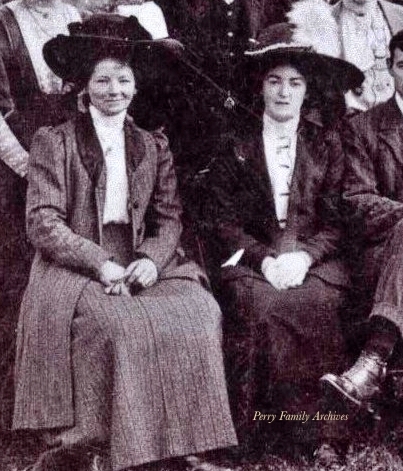
During that evening, it was announced the W.I. social calendar was to be expanded. W.I. Whist drives and their accompanying dancing plus concerts would be arranged to boost fundraising. Dowlish Wake schoolroom already saw many a successful and enjoyable concert evening, having moved desks and chairs aside.
There was always a succession of willing performers. Attracting any in the village who could render a suitable song or two. So popular that in 1908 singers were restricted to those from the village only. In an attempt to encourage any "latent talent slumbering amongst them", new rules had to be implemented. Performers would not be allowed to repeat more than one verse as an encore, even if the crowd were repeatably calling 'encore'!
Community singing was very much a feature of village life, so was naturally included in the W.I. agenda. Another staple was a regular activity topic. On this first evening, the activity offered and enjoyed, 'budget' meals proved popular with much exchanging of favourite recipes. Economical Meals at that time were ever useful as shown by memories recorded in the book, 'Within Living Memory'. A publication by Somerset Federation of Women's Institute in 1992.
"Meals were often contrived from nature, rabbit pie or jugged hare regularly on the menu. Prudent housewives pickled and preserved every thing in surplus. Pig's offal costing about one shilling, was painstakingly processed and fed the family on chitterlings, faggots and brawn. The only form of cooking, maybe an open coal fire. Times were hard, especially for women. They led a very pedestrian life centred around the local community."
This example shows a woman reading however the women of this article in 1920s, would most likely be darning socks or knitting! Spare time in short supply, families were large, cottages cramped, no running water. Oil lamp or candle lit living with dark trips down the garden, the outhouse toilet with its wooden seat. Housework and farm chores juggled and shared with the children.
It has to be reminded that having neither gas or electricity, meals cooked either on an open fire, a paraffin cooker, or maybe, as the examples here, a built in cast iron kitchen range. This for the housewife hard work, the fire fed early morning with coal or a faggot of wood, having cleaned away the previous days ashes. Once lit, it was best to keep it smouldering, no thermostat so experience learnt the hard way. Bread would be baked in the oven part, a stew simmering on the hob and a kettle singing on the coals. A wooden clothes horse with wet washing draped around it at other times. After which, the 'flat irons' would be heated on the range, ready for an ironing session. Not forgetting the weekly 'blacking' of the range, with a tin of black-lead 'Zebra' once a week.
February Meeting
At the February meeting the minutes mention an open meeting with all enjoying a talk on Cottage Gardening. However, a competition for ‘The Best Handmade Bag’ was not popular, with only two entries. Women, aware of changing fashions after the war, began to show increased interest in the making of garments. Photographs in this article, mainly showing guests at various Dowlish Wake village weddings, illustrate the style of attire, skirts long and hats dressy.
March - Ideal Home Life
Not surprising then, that great interest was shown in the March demonstration of Hat Trimming and Blouse Making. Granting the fact, attention was for need and budget as well as fashion. However fashions were changing pre-war, disappearing were the dressy large brimmed hats. Women would not venture out, unless wearing some form of headgear, now in the 1920s, hats were smaller, the snug fitting cloche hat fashionable.
Still in March, the meeting settled down to a change of topic with Mrs Mallett's talk, "Ideal home life". What this contained is unknown, but giving the broad range of backgrounds of the collected women, it is hoped they all were encouraged to feel equal.
Some of the members had servants others lived in small cottages, some sharing that with another family. Labouring wages were low so sharing crowded accommodation, no alternative. Charlie Fowler was heard to say that 27 children went to bed in 3 cottages, which is now one cottage, Spring Cottage! This would be Dowlish Wake character Charlie Fowler 1869-1960. He himself lived in Spring Cottage around 1939, when it was 2 cottages, later moving to Laburnum Cottage where he spent his last years.
Bath night once a week with water heated on the kitchen range, having carried the water indoors. A tin bath in front of the range in the kitchen or scullery. All taking turns with the water topped up from the hob. 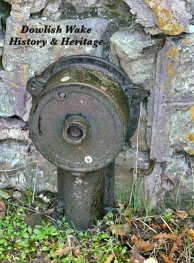
Older residents tell us that outside Prospect Cottage, down by the stream wich comes down from Bonner Leaze, is a spot they called "The Dip". Here on wash-day women from the village would be hand-washing their laundry in the stream water. [The 'Dip' doubled as the yearly sheep dip too!]
After washing the wet items would be draped over various hedges to dry.! In the book, a 'Women's Institute publication' titled, 'Within Living Memory', there is a references to nearby Ludney. Here, women from that hamlet, five of them, were seen to be positioned around a giant tub, five feet in diameter, doing their Laundry side by side!
Early Public Water Supply
Walking through the village you might have seen a cast iron item set in the wall, there are two of them remaining. They are Water Standards, research suggests these were manufactured in 1840s, although when they were fitted and brought into use in Dowlish Wake is as yet unknown. [Its also unclear as to how the pipework and tap was fitted.] Piped water came to the village in the 1920s but only those who could afford it had the supply piped to their cottages. The remaining villagers used Wash-Stand's that stood at various locations in the village. The family below with the children well turned out, illustrate the chore that wash-day might bring.
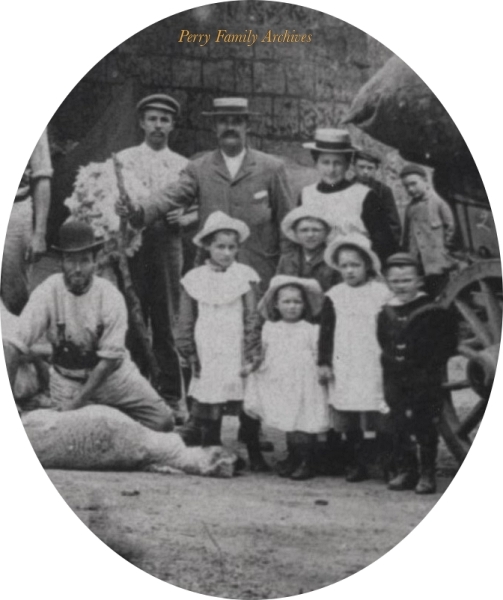
April
A Whist Drive and Dance in April in the schoolroom raised £2-4s-0d. Future Summer Outings were confirmed and to be financed by members contributing one shilling a head, starting September.
May - Hatching and Rearing Poultry
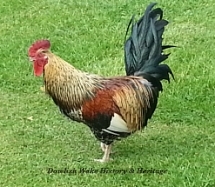
In July, still in 1920, members were choosing a destination for a Summer Outing and discussed the proposed cost, some £3 each.
Manor House Farm - Dowlish Wake
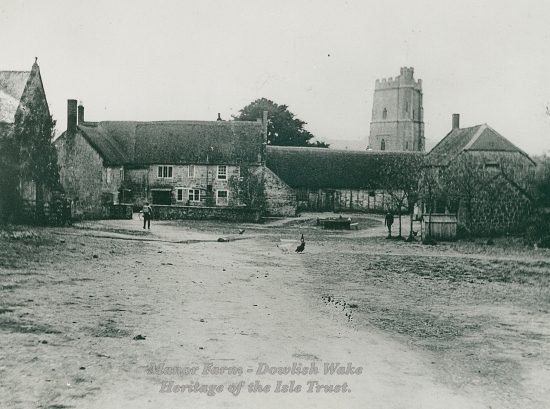
In August, Mrs Broughton of the Manor House, hosted the monthly meeting in the extensive gardens. This was a packed event,
[Dowlish Farm, seen here the frontage with St Andrews at the rear from around the 1920s]
It was announced that the branch was purchasing a Chimney Sweeps brush and rods both for members and to hire out.
It was announced that Mrs Mallett was to organise and run a W.I. Dramatic Society.
In September, Mrs H Cummings gave a talk on the League of Nations. Miss Sing in October demonstrated 'Soft Slipper Making'.
November, a demonstration was given on Cheese Making by Mrs Tucker of Hollands Dairy. Organised by Somerset County Council. The year-end Roll Call totalled 39 members. Their future village social events firmly marked on the calendar with several Whist Drives/ dance evenings planned.
Dowlish Wake Men's Institute
Dowlish Wake parish men folk had themselves in 1905 been setting up their Men's Institute. Committee members chosen and rules agreed, as did men in towns and villages up and down Britain. It was thought that such institutions were a much needed alternative to the public house for the working classes. In 1907, Major W H Speke had provided the Institute members with a club room, later known as the reading room. By 1921 Dowlish Wake Men’s Institute was well established, with members numbers reaching a record. Evenings in these club rooms on Church Path where spent playing billiards, bagatelle or cards, with ambitious plans to form a football club.
Meanwhile in 1921 , in the School Hall, adjacent to St Andrews Church, the Dowlish Wake Women’s Institute evening meetings went from strength to strength. Enjoying a comprehensive programme, with speakers demonstrating and addressing various topics and skills. For example, ‘Tinkering’, the repairing of pots and pans, this followed by competitions and prize giving. Evenings ending with a social mix of conversation, cups of tea, cakes and buns.
Magic Lanterns and Concerts
January 1921 saw Miss Sing introduce a craft activity of ‘Raffia Work’. Later in the month, a Monday evening concert was performed in the School Room;
The entertainers were Miss Long at the Pianoforte, a solo.
Miss Caffe [violin solo].
With songs from Miss Debarge, Colonel Hingley, Mrs Paull and Rev L Mallett.
This performance a 'pretty play' titled "The Tea Merchants Daughters of Peking".
The daughters played by Sylvia Hingley and Ruth Mallett.
The Sailor boy, Betty Mallett and the Tea Merchant Diana Hingley.
The stage manager, Colonel Hingley, who himself followed with a short sketch.
The profits from the evening were put towards a Magic Lantern purchased for use in the parish. Colonel Hingley of the Manor House at Horton, habitually entertained local groups with Lantern Slides such as 'Our Crown Colonies' and 'Wonderful India'.
March 1921 saw Mrs Board give a demonstration on ‘Camisole cutting’. Think, wool, flannel for winter and cotton for Summer.
Local Newspaper's report on W.I. Exhibitions
In May, at the Pump Rooms in Bath, an exhibition was held by Somerset Federation of Women's Institutes.
The newspaper, ‘The Somerset Standard’, reported on this. The issue dated, Friday the 20th of May 1921, under the heading Village Life, praised the achievements of Women’s Institutes:
“A tour of the exhibition on Wednesday proved very interesting, with many items on display. Demonstrations and examples of the activities provided by Somerset village Women's Institutes proved most enlightening. Spinning, weaving, home dying. Numerous fine needlework articles, fur craft and glove making, not only chamois leather but those made from animal skins. These skins had been cured and dressed. Displayed were gloves made from rabbit skins, slippers made from rat skins, and other articles fashioned in moleskins. On display bottled fruit, vegetables, jams and chutneys. Hearth rugs made from waste. Stools of stout appearance with leather tops. Boot repair, tinkering and cobbling demonstrations. Exhibits included ‘highly artistic’ Pen and ink sketches. A cooking stove made from a biscuit tin. On the whole, the entries were so many that they overflowed into the museum, where racks and tables of dairy produce; butter, Cheddar, Caerphilly, soft cheeses and eggs.”
Lady Denham, chair of the National Federation Executive Committee, addressed the Bath 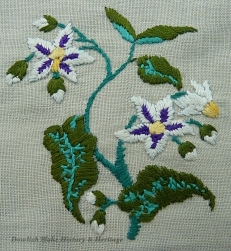
Likewise, the local newspaper, The Western Daily Press, reporting from that year's Bath & West Show, surveyed the numerous W.I. crafts stalls. The new opportunities open to rural women-folk. The article explained that the chief object of the W.I.'s was ‘to put women's spare time to profitable use. It assisted them in learning about home industries and provided them with healthy 'entertainment’.
It could be argued that 'spare time' was in short supply for village wives, in addition to a busy everyday life, many earned extra income from glove-making for local manufacturers, as out-workers. Village mothers juggling everyday chores together with mothering. As Iillustrated by such a women in nearby Barrington, in the book 'Within Living Memory', a mother of seven. She was known to 'rock the cradle with one foot and manipulate the gloving machine treadle with the other!
Gloving has long been carried out in Dowlish Wake, Census Returns confirm this, with in 1851, there were some 40 women occupied in Gloving. A Somerset home-worker cottage industry, saw women hand stitching the stamped out leather pieces, using sewing pins temporarily holding together the leather. In 1900s it was common for manufacturers to supply a 'Gloving Donkey' machine to out-workers, operated by foot pressure. This made neat rows of notches, these then guided the needle and thread stitches. Stitching was carried out with the glove inside out, so a 'pointing tool' assisted the reversal of the finished leather glove. Dowlish Wake Residents have found sewing pins under floor boards in cottages, evidence it is believed, of gloving, a remnant of this cottage industry.
Example Census Return for 1851 - Village wife - Glover - aged 64.
In June, Dowlish Wake WI meetings continued, with members competing with each other to make all manner of things. This meeting was held at Wake Hill, home of Mrs Walters, members enjoyed tea on the lawn, followed by games and competitions. Mrs Walter was an experienced organiser and supervisor of the local Nursing Association of Dowlish and Donyatt. This volunteer group supported villages, employing a trained district nurse. Calling on patients in times of need, minor, emergency or maternity. Locally run, funded by an annual subscription of 2 shillings plus fundraising, essential to fully support the nurse's salary.
Summer Outing to Weymouth
The summer outings were popular and looked forward to, such as the 1921 July trip to Weymouth. "A hired char-a-banc [early motor with seating for multiple passengers] departed 'The Rectory' at 8-30 am sharp. A delightful day on the beach and an 'appetising' tea partaken of at a seafront café. 'Bidding a fond farewell', a move was made to the board the char-a-banc, with home reached at 9pm.
August saw the members served tea on the lawn at The Rectory, with the hostess, Rector’s wife and vice president of W.I., Mrs Mallett. After tea and games, the misses Betty and Ruth Mallet entertained with a little charade, 'The Music Master'. After more games, the party ended at eight o'clock.
September and October saw demonstrations; Glove-making by Mrs Bonner and Leather Hat-making demonstrated by Mrs Burns. This was very popular, with 11 members signing up for extra classes.
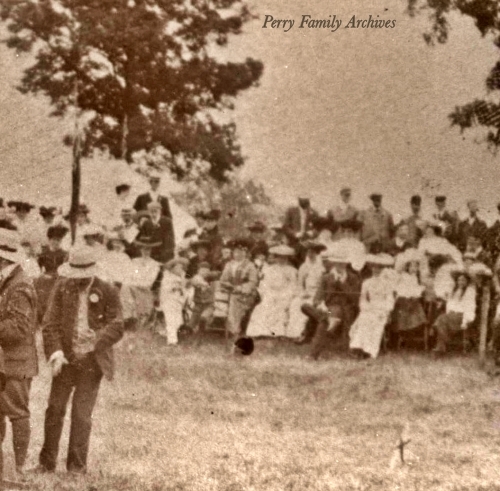
An open meeting in November with whist drive and dance, members and visitors contributing to the evening's entertainment. Miss Sing, the schoolteacher, presided at the piano. Later, prize-giving, with the winners announced.
Ladies, 1st Mrs Male, 2nd Miss Alice Falkner and 3rd Mrs Studley.
The gents, 1st Mr J Russ, 2nd Mr Stanley Bulgin, 3rd Mr Stone.
The booby prize to Mr Pearse.
The evening ended with the M.C., Mr William Churchill, reporting that funds raised that evening were 'going towards' purchasing a lamp [Magic Lantern] for the school room. The School room of course [now Speke Hall] is where Parochial and Institute meetings were held.
Snapshots for other years - archive records:
1922, April saw a string band entertaining members at a meeting in Moolham Farmhouse.
In October, a replacement brush for the Chimney Sweep outfit was purchased, hiring this popular.
Cups & saucers needed to be purchased, breakages to be charged at 2d per damaged item.
1923, a talk in March - 'The social side of the W.I.' - by Mrs Clowes was well received.
The garden meeting in June was held in the Rectory garden at Wake Hill.
Then in September, a Blackberry Ramble and picnic up on Windwhistle Common. Mr John Broughton provided the wagon to the picnic. Some 30 lbs of Blackberries were picked and sold to fund the tea expense.
Also, this month the first fruit and vegetable show was held.
A talk was given by Miss Watkins entitled: ‘How our thoughts affect our lives’.
In November, a resolution passed for a pint of milk daily to be provided for a young village lad suffering from Tuberculosis. The cost of 2d per pint from Institute funds and the milk be supplied by Mr Broughton.
January 1924, Miss Lowe from Hinton St George gave a talk on Hygiene. During the evening, a sale of craft articles was on display, made by members of the Institute. Later in January, a Monday evening Jumble Sale was held in the school room. The proceeds, £15 put to defray a debt on the Church Clock. During the evening, a talk was held by Captain Hartley, the organising secretary of a Hospital scheme for Taunton Hospital. Promoting it, he told of the benefits to subscribers and the hospital.
March brought much sickness to the villages of Dowlish and Kingstone, resulting in the March meeting being cancelled.
In April, the meeting was awash with primroses, basketfuls of them, picked by members. Mrs Sumption and Mrs Bulgin packed them into boxes. They were sent to Great Ormond Children’s Hospital in London.
It was announced an invalid chair had been acquired to be stored at the Boughton’s. Mrs Pike was to take charge of its delivery when needed.
A resolution passed for the provision of a W.I. Bank Account now their W.I. branch was growing.
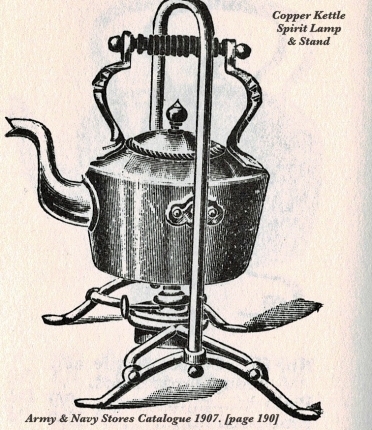
September 1924, Mrs Mallett gave a talk on her trip to Italy. Multiple jam making sessions in members kitchens were organised.
1924 was also the year that the anthem, ‘Jerusalem’, was introduced, sung at Women's Institute meetings. It’s easy to imagine these early members of the Dowlish Wake and Kingstone WI, opening and sometimes closing their meetings with what came to be known as the W.I. tune. A monthly rendition "In England's Green and promised Land" good for the lungs no doubt, with most likely on the piano, Miss Sing, the village schoolteacher.
The new year 1925, started with the concert planned for January being cancelled due to many sicknesses in the villages. The concert was rescheduled for July. However, that month Mrs Mallet had sadly lost her young daughter in a road traffic accident in Ilminster. Ruth had been crossing a road in Ilminster en route to her music teacher. Furthermore, Mrs Walter had lost her husband. Hence July is reported as a ‘quiet meeting’, with condolences expressed.
September's meeting was a Blackberry-picking picnic on Cricket Hill. Wednesday, the 2nd of September, saw them ferried by wagon to the slopes of Cricket Down, where 95 lbs of Blackberries were picked and later sold within the village. November, members brought offerings of wool to begin a Rug-making Ring. December brought the re-election of officers for 1926. With Mrs Walters President, Mrs Mallett Vice President.
In 1926, a lecture on 'Hygiene of the body’ was given by Miss Petty. Another month, April, Miss Sing entertained the members with a ‘Travel-talk’ on her holiday in Bruges.
In 1927 members decided to discard the Rug-making Ring as the purchase of wool was too expensive. Instead, they opted for learning Smocking. 1929 saw both a W.I. Sports Club and a choir formed.
Summary
Initially, Dowlish Wake joined with Kingstone, forming a self-elected committee with voting 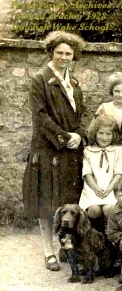
It’s clear ‘Women’s Institutes’ offered village women topics relevant to themselves as women. Homecare, health, food, personal growth and debating current societal issues. The new ideas, demonstrations and training promoted confidence and expertise. This also enabled them the possibility of bringing in extra household income.
But perhaps not everyone was enamoured with village W.I.'s. As was highlighted by a male speaker at the Oxford conference, 1922 of the Federation of Women's Institutes. The male speaker, Mr Hyde, re-called a conversation where the W.I. had been criticised as a feminist movement. He said it reminded him of a schoolboys’ explanation of the Women’s Institute, "a place where mother went when fathers’ tea was late". [much laughter from the audience]. However, the women did enjoy the weekly meetings, as illustrated later in 1979 when Mrs D. Coles addressed the Dowlish Wake WI on the celebration of their Diamond Jubilee.
"When I joined the W.I. 33 years ago, the subscription was 2/6 per year. I knew quite a few original members, and I am sure they would be proud of us now, 60 years later, to think we carried on where they left off. I have seen many changes and have many happy memories. I remember that in the early years, I only had one evening off a month, which was to the W.I. “Nowadays it is different – my husband can’t keep me in, there are so many things going on.”
Funding for W.I. demonstrations, training and lectures came in part from lecturers employed by Somerset County Council. Speaking at Taunton in September 1919, at a W.I. exhibition of craftsmanship, Lady Margesson explained the war had taught the country the necessity for organisation and cooperation. " The Government seemed to have awakened at last to the needs of women in rural districts and encouraged such movements as the W.I.’s".
Of great help to the various Women’s Institutions was the Somerset Rural Communities Council, formed in 1926. "Its aim to bring people together, put people in touch with those who could supply the need, purposely for rural industries and village life". They held a list of lecturers and provided instruction. Likewise, Cannington Court [Somerset Farm Institute].
In 1919, here in Somerset, provision was being made for the many ex-servicemen returning home from the war. A local estate was purchased by Somerset County Council. A smallholding settlement scheme for soldiers and their families who could become tenant farmers.
The estate contained Donyatt with 2,200 acres and Dowlish 400 acres. Each small-holdings ‘average size’, was around 50 acres. The tenant farmers and family grew enough to feed their dairy cows and also kept pigs and poultry as a side-line. Therefore, the skills being learnt by Women’s Institute wives likely timely.
In 2004 Dowlish Wake Women's Institute members celebrated their 85th birthday. A year later in
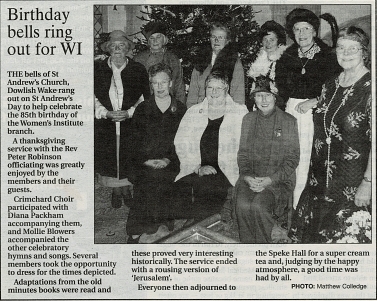
The content of this article has been researched and written with the help of the Dowlish Wake W.I. 'Committee minute books', held at the Taunton Archive centre. These early records include photographs, documents and scrapbooks. They give interesting reading and a window into life in the Dowlish Wake village.
Further reading and sources:
Dowlish Wake History and Heritage village archive records.
W.I. Committee minute book of meetings in December 1919, Somerset Heritage Centre, Ref DD\WI/208/1 swheritage.org.uk
The photo on the right is of DW members contribution in 1999 to display in Dunster Castle. Here they recaptured the decade 1900 -1910, with various crafts and items.
Newspaper records -The British Newspaper Archive – Find my past Subscription website. findmypast.co.uk
Lady Margesson. Western Daily Press, the 25th of September. 1919.
1912 Background on outworkers - Gloving industry - Western Chronicle, Friday 18th October 1912.
1921 Men's and W.I. Institute meetings- The Taunton Courier and Western Advertiser, the 30th of November 1921
1921 Concert - Schoolroom. Taunton Courier and Western Advertiser - 26 Jan 1921
1921 Concert- Schoolroom. Taunton Courier and Western Advertiser - 30 Nov 1921
Missed Betty & Ruth Mallett, The Courier, Wednesday, the 31st of August, 1921
November meeting 1921. Taunton Courier and Western Advertiser, the 30th of November - 1921
Women’s spare time! - Bath & West Show the Western Daily Press in June of 1921. Reporting on the Somerset and Gloucester Women’s institutes. The reporter wrote, " The chief object is to give women in the villages opportunities to put their spare time to profitable us, to assist them.
Mr Hyde -1922 of a Federation of Women's Institutes at Oxford. The Banbury Guardian Thursday the 13th of July, 1922.
1924, Jumble Sale in Speke Hall, Jan 1924 printed in the courier, Wed the 16th of January.
Census Return 1851 - thegenealogist.co.uk - Ann Perry, Glover.
Description of Gloving in Somerset - Exellent local website - Kingsbury Episcopi - kingsburytimetravellers.org.uk - photo of Gloving Donkey. "Gloving in the Area - A Brief History".
Book – A Force to be Reckoned With – A History of the Women’s Institute – Jane Robinson
Book - 'Somerset Within Living Memory'. A publication by Somerset Federation of Womens Institute in 1992. Ludney Women washing. Page 81.
Book - Dening of Chard - Agricultural Engineers 1828-1965. By Derrick Warren, a publication of The Somerset Industrial Archaeological Society 1989.
Wikipedia
Family Search.org.
Water pump supply. - 'Rural Water Supply in Somerset'. by Derrick Warren. SIAS publication dated 1998
The only other Water Standard similar to Dowlish Wake's is at Puckington. Both Dowlish Wake and Puckington are recorded in the above publication: WS [Water Standard] on page 16.
